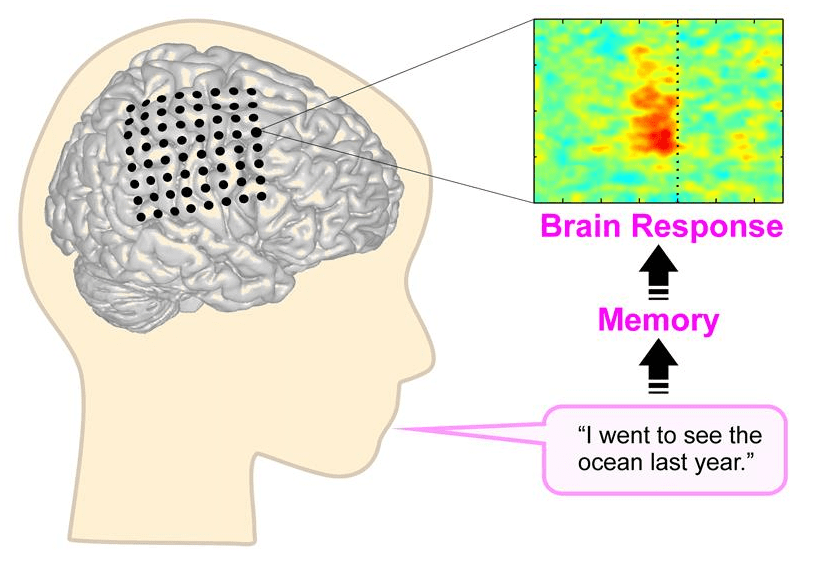
The researchers analysed content-specific neural responses and observed clearly visible patterns of brain activity. Source: BrainLinks-BrainTools (click to enlarge image)
For the first time, neuroscientists have discovered how different thoughts are reflected in neuronal activity during natural conversations. Johanna Derix, Olga Iljina, and the interdisciplinary team of Tonio Ball, PhD, from the Cluster of Excellence BrainLinks-BrainTools at the University of Freiburg and the Epilepsy Center of the University Medical Center Freiburg (Freiburg, Germany) report on the link between speech, thoughts and brain responses in a special issue of Frontiers in Human Neuroscience.
“Thoughts are difficult to investigate, as one cannot observe in a direct manner what the person is thinking about. Language, however, reflects the underlying mental processes, so we can perform linguistic analyses of the subjects’ speech and use such information as a ‘bridge’ between the neuronal processes and the subject’s thoughts,” explains neuroscientist Johanna Derix.
The novelty of the authors’ approach is that the participants were not instructed to think and talk about a given topic in an experimental setting. Instead, the researchers analyzed everyday conversations and the underlying brain activity, which was recorded directly from the cortical surface.
Earlier psycholinguistic research indicates that a simple sentence is a suitable unit to contain a single thought, so the researchers opted for linguistic segmentation into simple sentences. The resulting “idea” units were classified into different categories. These included, for example, whether or not a sentence expressed memory or self-related content. Then, the researchers analyzed content-specific neural responses and observed clearly visible patterns of brain activity. The neuroscientists demonstrated the feasibility of their innovative approach to investigate, via speech, how the human brain processes thoughts during real-life conditions.
Source: University of Freiburg





